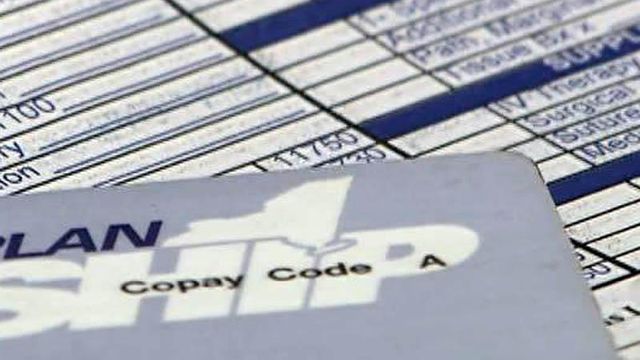Medical ID theft up in down economy
Offenders often steal personal numbers of insured people or make up a name. In other instances, patients are complicit in the fraud by loaning their insurance cards to others.
Posted — UpdatedOfficials say a dramatic spike in medical identity fraud cases is a main reason behind the change in practice.
"We've gone from perhaps a handful a year to one or two a week. That's significant," said Roger Purnell, director of the Special Investigations Unit for Blue Cross Blue Shield of North Carolina.
ID theft, fraud and other illegal activity costs health insurers, providers and ultimately patients an estimated $68 billion a year.
Purnell attributed the rise in ID theft to the down economy, with more uninsured people looking for cheap care.
Offenders often steal personal numbers of insured people or make up names. Stephen Thomas Mullen of Knightdale, for example, was recently arrested after WakeMed accused him of giving a fake name and address and running up a $45,000 medical bill.
Guidelines at WakeMed also call for patients to provide photo IDs, and officials said hospital staff work to confirm patients are who they say they are.
"Over the last few years, this has definitely gotten more attention," said Becky Andrews, WakeMed's vice president for financial services. "We're always looking for new ways to positively identify patients."
In other instances, patients are complicit in the fraud by loaning their insurance cards to others.
Purnell cited one case where a man took his girlfriend to the emergency room and tried to pass her off as his wife by using his insurance card. The fraud was eventually exposed.
"It's extremely serious," Purnell said of the growing amount of fraud. "Everyone suffers. Costs are being incurred that are inappropriate."
Medical professionals said those who can't afford care are better off telling the truth.
By law, emergency rooms can't turn away the sick and injured when they don't have identification or insurance. Patients who lie about their identity also face the potential for medical complications.
"We have all (of a patient's) medications and chart all their allergies and these kinds of things," said Kristin Fisher, administrator of Raleigh Family Practice. "(If) a different patient presents (and) says they're this patient with this insurance, they could cause a lot of safety issues."
Insurers and health care providers said patients need to be more vigilant to stop medical ID theft by routinely checking their medical files and bills for any unusual charges or prescriptions.
• Credits
Copyright 2024 by Capitol Broadcasting Company. All rights reserved. This material may not be published, broadcast, rewritten or redistributed.





